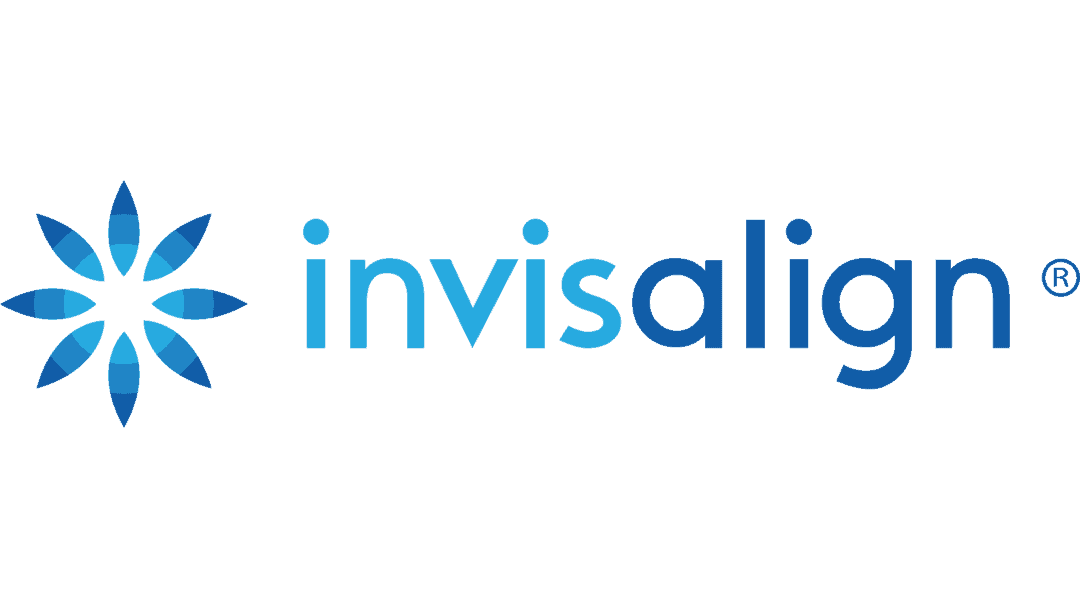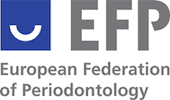Stop Snoring, Cure Sleep Apnea. Have Recovering Sleep Nights for Energetic Days
Latest Techniques
Innovative Tech
Certified Experts
Struggling with snoring and poor sleep? We can help you!
Snoring and sleep disturbances are often signs of obstructive sleep apnea, which your oral health could be responsible for.
Many patients are surprised that I ask about their sleep. After I explain to them why Sleep apnea occurs and how a Sleep Medicine Dentist can help, they wonder why none of their previous dentists asked them about their sleep quality before.
Indeed a dentist with knowledge in Dental Sleep Medicine is usually the earliest diagnostician of sleep disorders.
Do you have sleep apnea? Take the quiz.
What is sleep apnea?
Sleep apnea is a potentially serious sleep disorder characterized by repeated pauses in breathing during the sleep cycle. These pauses, known as apneas, can last from a few seconds to over a minute and can occur several hundred times during the night.
Apneas are caused by the collapse of soft tissue in the airway, preventing oxygen from reaching the lungs. Weak muscles in the airways, a large tongue, obesity, and other factors can cause airway tissue to collapse and obstruct breathing.
There are several forms of sleep apnea. Sleep-disordered breathing includes obstructive sleep apnea (OSA), central sleep apnea (CSA), and mixed or complex sleep apnea.
Obstructive sleep apnea (OSA) or central sleep apnea (CSA) occurs when breathing stops due to a lack of effort to breathe; a combination of the two is called Mixed or Complex Sleep Apnea.
How common is sleep apnea?
Sleep apnea is more common than you may think. Also, the number of people who suffer from this sleep disorder has increased in recent years due to a rise in other health conditions. Here are some statistics:
- 25% of adults have sleep apnea.
- 60% of Cardiovascular Patients also suffer from Sleep Apnea
- 85% of all Sleep Apnea Patients remain undiagnosed
Obstructive sleep apnea (OSA) is by far the most common, affecting adults and children.
What’s the link between OSA and sleep quality?
Sleep apnea disrupts the sleep cycle and can dramatically affect your energy, mental performance, and overall health.
When a person falls asleep, the muscles of the upper airway relax, causing the palate and tongue to drop and block the airway. In most people, this tissue drops only a little and is a normal process with no serious consequences.
However, in obstructive sleep apnea, the airway becomes completely blocked, especially if the muscles at the back of the throat are flaccid, the tongue is too large, the jaw is too small, the lower jaw is more posterior in relation to the upper jaw, the lingual frenulum is too short, or a combination of these factors.
When the brain detects the blocked airway, it sends an alarm signal and wakes up the rest of the body to resume breathing. After a few seconds, the heart rate, blood pressure, and oxygen levels have often returned to normal, allowing the person to fall back asleep.
Apneas cause repeated breathing interruptions throughout the night. They can occur many hundreds of times during the night, 30 or more times per hour, lasting from a few seconds to minutes, causing disrupted sleep patterns and putting stress on the cardiovascular system.
What are the consequences and risks of sleep apnea?
Sleep apnea is a serious medical condition. The long-term effects of sleep apnea include a higher risk of neurological problems, heart disease, stroke, diabetes, and depression. Left untreated, obstructive sleep apnea increases the risk of:
- Daytime fatigue. Repeated awakenings associated with sleep apnea make restful sleep impossible, resulting in severe daytime sleepiness, fatigue, and irritability. You may have difficulty concentrating on your daily tasks and fall asleep at work while watching television, or even while driving. People with sleep apnea are at increased risk for traffic and work-related accidents. You may also be cranky, moody, or depressed. Children and adolescents with sleep apnea may have poor school performance or behavioral problems.
- High blood pressure or heart disease. A high number of times per night, the blood oxygen levels drop. This increases your cortisol levels and your blood pressure, placing significant stress on the cardiovascular system. There is a close relationship between obstructive sleep apnea and high blood pressure (hypertension). 60% of cardiovascular patients suffer from sleep apnea. Obstructive sleep apnea can also increase the risk of heart disease in the form of stroke, recurrent heart attack, or arrhythmias (abnormal heartbeats, such as atrial fibrillation). If you already have heart disease, the continuous episodes of low blood oxygen (hypoxemia or hypoxia) can lead to an irregular heartbeat and even sudden death.
- Type 2 diabetes. Sleep apnea increases your risk of developing insulin resistance and type 2 diabetes.
- Metabolic syndrome. This disorder, which includes high blood pressure, abnormal cholesterol levels, high blood sugar, and obesity, is linked to a higher risk of heart disease.
- Complications with general anesthesia (if you need surgery). Sleep apnea patients are more likely to have complications during major surgery. Tell your doctor before your surgery about your sleep apnea and how it’s being treated. Or have it checked before the surgery if you have time.
- Fatty Liver. People with sleep apnea show statistically poorer liver function tests, their livers showing signs of scarring (nonalcoholic fatty liver disease).
- Shorter life expectancy. All these consequences lead to a considerably shorter life expectancy. According to several studies, the life expectancy of untreated patients under fifty years of age is reduced by 8 to 18 years.
- Sleep-deprived partners. That is, not only are you suffering the consequences but your sleep partner as well! Loud snoring prevents anyone sleeping near you from getting good rest.
What are the warning signs and symptoms of sleep apnea?
Some of the main warning signs and symptoms of sleep apnea include
- Snoring
- Suddenly awakening due to gasping or choking or startling awake
- Witnessed interrupted breathing while asleep
- Restless Sleep
- Frequent Restroom Visit
- Bruxism, tooth grinding
- Fatigued jaw, head, and neck muscles
- Headaches in the morning
- Morning Sore Throat Or Dry Mouth
- Daytime sleepiness and lack of energy
- Sleepiness During Routine Activities
- Excessive Daytime Fatigue
- Poor Concentration, Difficulty paying attention
- Memory problems
- Mood changes
- Depression Or Irritability
What are the causes of sleep apnea and the contributing factors?
General Factors
- Excessive weight
- Smoking
- Excessive alcohol consumption
- Allergies
- Deviated septum
- Thick neck
- Hypothyroidism
- Use of sedatives or sleeping pills
Oral Factors
- Tongue too large
- Palate tissue size is large
- the jaw is too small
- the lower jaw is positioned rather back in relation to the upper jaw
- the tongue frenum is too short
- Tongue position is low instead of touching the palate at all times
- Mouth breathing pattern instead of nose breathing
How is sleep apnea diagnosed?
If you suspect you have sleep apnea, the first step is to take a Standard Symptom Test.
Home Sleep Apnea Test
Overnight sleep studies are the only reliable method for correctly screening and diagnosing sleep apnea.
Where does diagnostic testing for sleep apnea take place?
At Smile to Win, we provide you with a screening device that you can take home, or we can ship it to you so that you don’t have to come to the office. This way, you can have a home sleep apnea test (HSAT) with the comfort of your own bed. We analyze the data, and we will have a consultation afterward.
Depending on the result, we may advise you to have a more thorough diagnose at a cardiologist or pulmonologist for a complete diagnose. In these cases, you usually have to sleep at a sleep clinic for further testing.
Click Here to learn more about WatchPAT
How is the dental check for sleep apnea?
In the appointment, we carry out a thorough assessment of your risk factors mentioned above. We especially check for signs that you may not have perceived, such as tooth wear, signs of bruxism, or tooth grinding.
- Occlusion: your bite position, mandibular relationship, tooth wear facets
- Tongue: size, frenum, deglutition dynamics
- Teeth with disturbance fields: running cavities, infections, leakages…
- X-rays: extraoral x-rays, for airway and tongue assessment, intraoral x-rays, for cavities and bone health check
- Blood analysis and/or quantum resonance analysis: vitamins, minerals, amino acids, cortisol levels
Teeth grinding can lead to wear and tear on the teeth as well as inflammation and receding gums. Tooth decay buildup can also be a sign of teeth grinding because the force damages the teeth and makes them vulnerable to decay-causing bacteria.
Every time you tense your jaw and grind your teeth while sleeping, you send a signal to your brain to wake up so you can catch your breath, which triggers what is known as an arousal response or sleep disruption, with or without airway obstruction.
Teeth grinding is just one of many oral health signs of sleep apnea. A narrow jaw, tongue with scalloped edges, or redness of the throat (caused by frequent snoring, another symptom of sleep apnea) are also common signs.
Is a nightguard enough?
An over-the-counter night guard alone cannot solve the problem and may even make sleep apnea worse. A custom-fitted guard can reduce the teeth grinding, the head and jaw pain, and help with sleep apnea.
However, the decision as to whether only a nightguard or a mandibular advancement appliance is better can be made by your sleep dentist if he or she has sufficient knowledge of dental sleep medicine.
Also, a nightguard does not treat the cause. It rather minimizes the consequences. The cause of teeth grinding can not only be sleep apnea but also an overexcited nervous system due to stress of different kinds. We always encourage a multidisciplinary approach in these cases, involving a dentist, physician, naturopath, and physiotherapist, if you really want to close the circle or cause-effect healing.
How to Treat Sleep Apnea? What Treatments Are Available?
Each treatment plan depends on your sleep analysis results since the cause and the consequences of sleep apnea or snoring are different from person to person.
We assess your specific case, perform a sleep screening, and work with your primary care physician or our/your pulmonologist if needed so that you receive the best treatment plan to support your overall well-being.
For some, treatment may mean adopting new sleep habits and improving their sleep hygiene. For others, treatment may consist of mandibular advancement splint for the night or the use of a CPAP mask in the most severe cases. Laser therapy can also be considered to reduce the size of the soft palate in some cases.
What are the goals of sleep apnea treatment?
The goal is to improve your overall health and well-being, thus reducing cortisol levels and hypertension, reducing the risk of heart disease, diabetes type 2, obesity, fatty liver, traffic accidents, or falling into depression.
Specific goals are to improve the quality of your sleep, reducing the number of apnea episodes. After you recover your sleep quality, you will feel more energetic and concentrated because you wake up having rested.
Also, Sleep coaching can help you successfully manage sleep apnea symptoms over time.
How can dental sleep medicine help your sleep apnea?
Dental Sleep Medicine is an area of specialization for dentists that focuses on treating loud snoring and sleep apnea. Dentists trained in Dental Sleep Medicine collaborate with doctors to find the best treatment plan for each patient’s sleep disorder. Since many snoring and sleep apnea sleep disorders are mild to moderate, these can be treated primarily through oral appliances that improve the airway and let patients have a restful night’s sleep.
As a matter of fact, more and more sleep apnea cases are getting diagnosed by dentists rather than by doctors.
What is the role of your dentists in treating sleep apnea?
A dentist can identify symptoms and collaborate with a physician in the diagnose and treatment plan by assessing a patient’s complete medical history and performing a screening. Following a physical evaluation, diagnosis, and sleep test, the dentist trained in dental sleep medicine can determine if an oral device is an effective treatment solution, design the device and optimize the fit (hinge type, position or tongue device model).
As the patient progresses with the sleep apnea treatment, the dentist communicates with the physician to track progress and ensure the best sleep for the patient.
Which dental appliances are there for the treatment of snoring and sleep apnea?
There are two dental appliances to treat snoring and/or sleep apnea: mandibular advancement devices (MADs) and tongue-retaining mouthpieces. CPAP therapy is always efficient, but it is also uncomfortable for many patients. Of all the therapies for mild and moderate sleep apnea, CPAP is the most abandoned one by the patients. So it seems reasonable to go for lighter, more comfortable, and easier-to-wear devices.
Mandibular Advancement Devices
They are also called MADs for short. They look like athletic mouthguards that fit onto the upper and lower teeth. A hinge connects the upper and lower parts. The hinge holds the lower jaw and tongue in a slightly forward position while wearing it at night. It releases the airway obstruction of the soft tissues in the back of the mouth and throat when they relax during sleep. Adjusting the fit, the type of hinge, and position of MADs is a very specialized task of trained dentists in dental sleep medicine.
Tongue-Retaining Mouthpieces
For those sleep apnea patients with minimal jaw flexibility, tongue-retaining mouthpieces are there to help. These devices fit around the tongue and keep it from falling back into the airway during sleep.
Dental Device Integration with Medical Sleep Apnea Treatment
CPAP therapy is the most efficient but also the most abandoned type of therapy, especially by the light or moderate sleep apnea sufferers who have other easier options. CPAP therapy is encouraged for severe sleep apnea cases and some moderate cases. Oral devices, like MADs and tongue-retaining mouthpieces, can help those with mild to moderate sleep apnea. Also, the treatment may include both an oral device and a CPAP machine very successfully.
Find your best treatment options for sleep apnea
If you feel identified with what you have read so far, your journey toward your restful sleep, daily energy, and well-being should start today. Contact us to find out how we can help you to achieve that.










Book An Appointment
Call: +41 444 222 131
Forchstrasse 34, 8008 Zürich